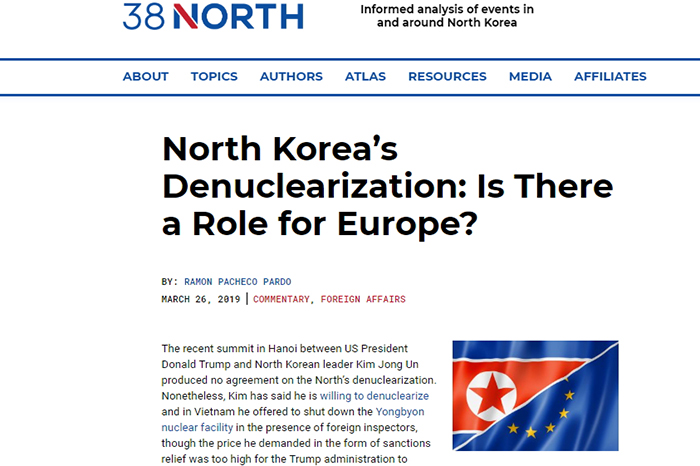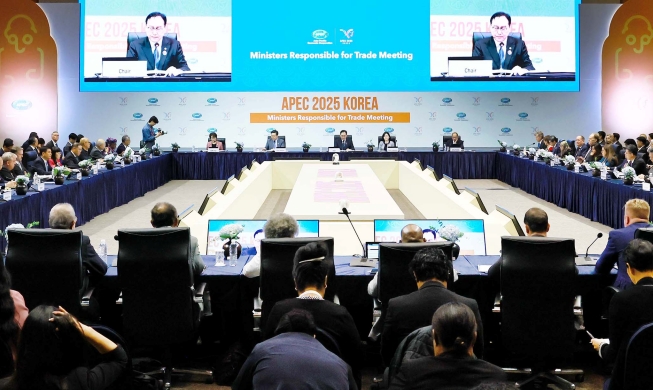
A European scholar on March 26 emphasized Europe's potential to play a bigger role in denuclearization talks between North Korea and the U.S. in an article published on 38 North, a U.S.-based website that monitors the North. (Captured image from 38 North homepage)
By Yoon Sojung
A European scholar has stressed Europe's potential to play a bigger role in denuclearization talks between North Korea and the U.S. after their latest summit in Vietnam failed to produce an agreement.
Ramon Pacheco Pardo, Korea Foundation (KF)-Vrije Universiteit Brussel (VUB) chair at the Institute for European Studies in Brussels, on March 26 said in a piece carried by 38 North, a U.S.-based website that monitors the North, "If they (U.S. and North Korea) eventually produce agreements, the disabling and dismantling of North Korea's nuclear weapons and infrastructure will present enormous technical, logistical and financial challenges."
Titled "North Korea’s Denuclearization: Is There a Role for Europe," the article said the dismantlement of North Korean nuclear weapons and related facilities will prove complex, adding, "Experts would need to be involved at all stages of centralizing."
"Here is where Europe, normally on the fringes of the North Korean denuclearization issue, could become more directly involved in the process in several modest but important ways."
Pacheco Pardo mentioned inspections, logistics support, funding and expertise as fields through which Europe can directly assist the North's denuclearization process.
For inspections and logistics support, he said, "British and French inspectors could be useful in verifying the dismantlement of declared materials," adding that both countries "have recent experience and the necessary expertise in the management and handling of nuclear materials."
On funding, he said "The EU may be willing, however, to provide funds for discrete projects in which they might be involved, such as the purchase and transport of nuclear materials to Europe."
Also an associate professor at King's College London, the scholar mentioned the U.K.'s experience in cooperation with the U.S. team in verifying and removing Libya's nuclear program.
Emphasizing Europe's role as a "neutral facilitator of engagement," he said "Europe's involvement also helped to build greater Libyan and Iranian trust in the U.S." in Libya's nuclear disarmament and the nuclear deal with Iran.
The North Korean regime "almost certainly perceives the EU as a more neutral actor in Korean Peninsula affairs compared to the U.S. and China," he said, adding, "For political and psychological reasons, therefore, the U.S. could find it useful to get Europe involved in the denuclearization of North Korea as well."
"The expertise and experience of the U.K. and France in nuclear weapons stewardship, their neutrality in Korean Peninsula affairs, and the EU's strategy to get more involved in East Asia's security affairs could help both countries play a constructive role in the implementation of any denuclearization agreement of the U.S. and North Korea might eventually sign."
On what the U.S. might think of an expanded European role, Pacheco Pardo said, "The Trump administration might also see political value in having its European allies taking on some of the burdens of North Korean denuclearization."
Click the link below to read the 38 North article.
https://www.38north.org/2019/03/rpachecopardo032619
arete@korea.kr
